In traveling the country, I’m often impressed by those who do not travel—people who stay put and devote their lives to transforming institutions.
During my visit to Holly Springs, Mississippi, I visit David Beckley, in his nineteenth year as Rust College president. A native of nearby Shannon, Mississippi, Beckley graduated from Rust in three years (classmates recall Beckley saying he would someday head the college), served in Vietnam and earned his doctorate down the road at Ole Miss, when much of the university welcomed African Americans with unopen arms.
In the early 1960s—Beckley’s time as a Rust student—the college had lost accreditation and no Ph.D.’s remained on the faculty. Today 62 percent of Rust’s faculty have Ph.D.s and the college is regularly reaccredited. Rust’s endowment, once virtually nonexistent, now stands at $25 million, headed for $30 million, says Beckley.
Almost 70 percent of Rust’s students in the early 1960s came from Mississippi, the poorest and possibly the worst state in the country in terms of public school education. In local Marshall County, which was 70 percent black, “separate but equal” public schools operated on a reduced “split” schedule that encouraged students headed for Rust to pick and “chop”—weed with a hoe&mdas;cotton in season.
Not surprisingly, perhaps, Rust’s average entering first-year student read at a level equivalent to that of an eighth or ninth grader. In a 1961 survey of the entering class, four times as many students read at a fifth to sixth grade level as read at a twelfth grade level or above.

International Rust College students Sandi Litia, 22, from Zambia; Nigel Chimbetete, 21, from Zimbabwe; and Omolola Dawodu, 25, from Nigeria;
Today, more than half of the college’s 900 students come from 26 states other than Mississippi. Rust also attracts 70-80 students from foreign countries. We interviewed three Rust students from Africa—Nigel Chimbetete, 21, from Zimbabwe; Omolola Dawodu, 25, from Nigeria; and Sandi Litia, 22, from Zambia.
Faced with few resources and isolation from much of the outside world, small, historically black colleges like Rust could have been satisfied to, in James Baldwin’s words, “make peace with mediocrity.” But, at least in the case of Rust under President Beckley, whom I’m proud to call a former student of mine, the goal is transformation with a transnational student body.
Loren Ghiglione

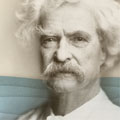
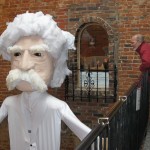
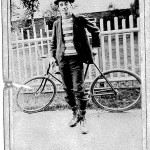
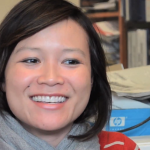


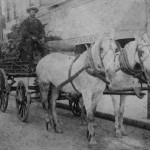






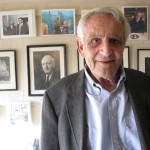


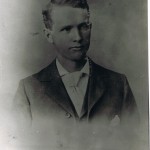







How proud am I? I have served at Rust For 10 years now, and I can honestly say I’m so very proud to be a part of this historical institution. Not only does Rust turn out great professionals from all over the world of an array of diverse backgrounds asnd nationalities, but we also do great works, and we have a leader in Dr. Beckley who stand for integrity, doing what’s right and committed to serving students in such a way that they will never feel unengaged from Rust College and what we stand for. He is the Renaissance of Rust College; student oriented and he forever stands for Education with a spiritual and rich foundation. Rust is a great institution…and as dipicted by this well written article, it’s greatness is reflected by it’s leadership!!
Dr. David Beckley is well deserving of acknowledgement of his accomplishments at Rust College as well as other institutions that he has been a part of. I truly apprecaiate his dedication and leadership given to educating those who desire to further their education and better their lives. There are not enough individuals today like Dr. Beckley, who are truly concerned about the educational welfare of the next generation.